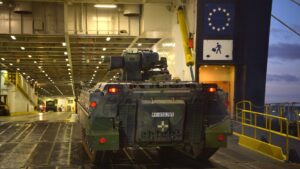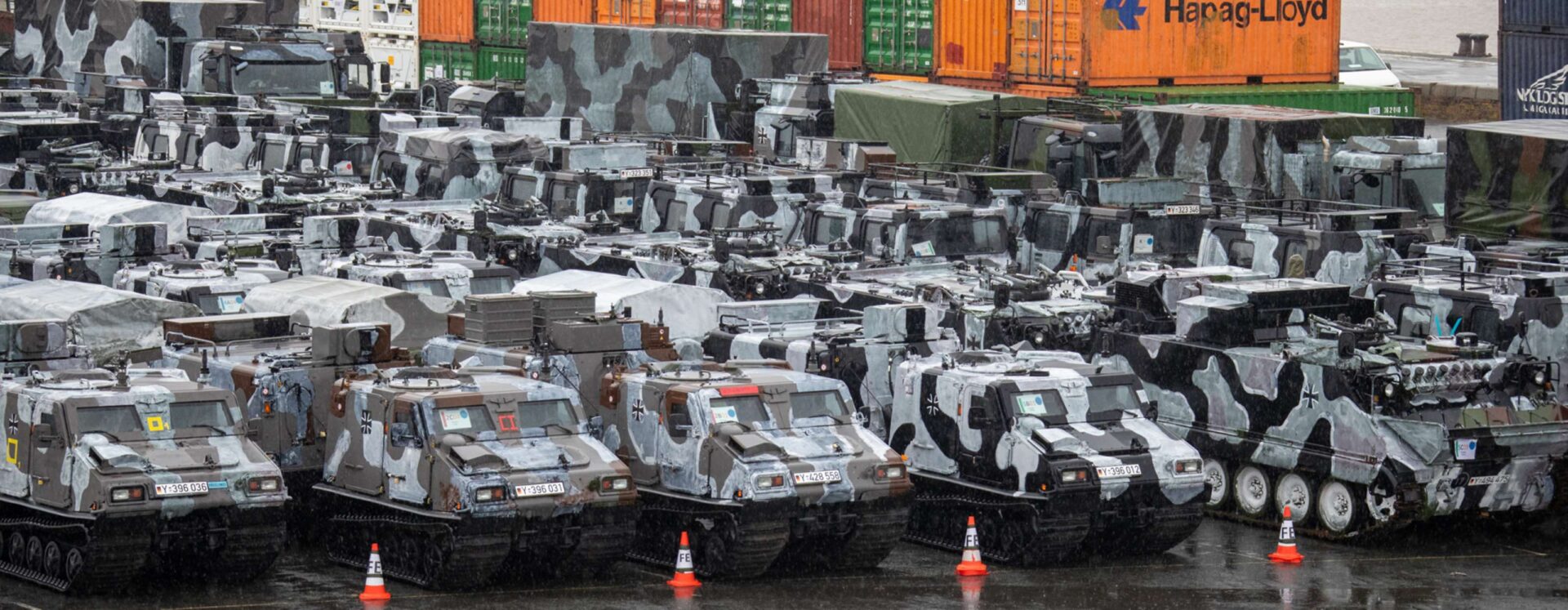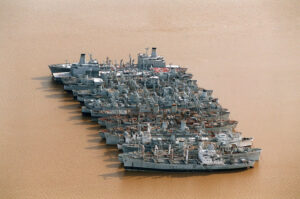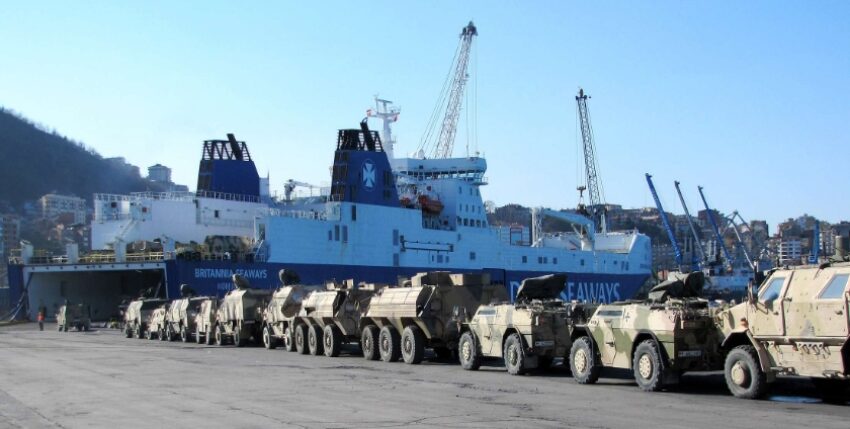The maritime foundation of European defence and national resilience is more important today than ever before. Securing it is vital for a free Europe.
In contrast to the USA, there are no cargo ships kept in reserve in Europe for national emergencies. There are contracts for the use of merchant ships for strategic logistics - dimensioned for military transport tasks in foreign missions, not for supplying Europe in the event of defence. And if you look at the roughly estimated freight volume of even a war economy, the greatly reduced American Reserve Fleet of today is not even sufficient for one side of the Atlantic.
Where a few decades ago a certain degree of national merchant shipping, ship capacities and crews still enabled a sovereign basic supply, ships owned by letterbox companies, equipped with crews and flags from third countries and built and financed in China raise major questions about reliable access in an emergency. How much can Germany, the EU and NATO rely on ships being available not only for military logistics on day 30, 200 or 1000 of a war, but also to maintain the defence and resilience of the entire society in Europe?
With credible deterrence as the most reliable way to achieve lasting peace, supplying the European peninsula by sea is once again taking centre stage. The task is too great for one ally to fulfil alone. It means more than protecting sea lines of communication militarily: In case of doubt, there is a lack of ships and crews to transport vital goods along these routes.

Europe's resilience depends on global maritime supply chains, not just military transport across the Atlantic. Without imports of energy goods - oil, coal, gas - but also other critical raw materials and goods such as iron ore, steel, aluminium or copper, the EU states will not be able to withstand a prolonged war. And these goods are the obvious ones that must continue to arrive in large quantities by ship. Furthermore, every European offshore wind farm that is available in the event of defence not only means a source of energy that is independent of imports, but also represents a valuable strategic outpost far off the coast if it is well integrated into the security architecture.
A sustainable war economy is part of credible deterrence - and without secure supplies by sea, it is unthinkable for Europe. Both the conduct of the war in Ukraine and the behaviour of the allies to date indicate that a war with Russia would not be over quickly - a consistent counter-attack by NATO would always be subject to the fear of nuclear escalation. Russia's close cooperation with China, Iran and North Korea also harbours the risk that the other side will hold out for a long time.

An overall European strategy for the current geopolitical escalation requires a global maritime component: Credible deterrence requires sustainable national resilience - and this only exists as long as enough ships with the right cargo arrive in European harbours. This includes protecting these ships from hybrid threats or relatively easy-to-orchestrate attacks, as successfully demonstrated by the Houthis in Yemen, and it includes the co-operative and, in case of doubt, threatening, effective presence of powerful naval forces to flank diplomacy and trade.

Last but not least, a reliable transport capability for goods flows is needed to keep the European allies alive and able to act. In all of these strategically important aspects for Europe, innovative, disruptive solutions are needed - for business as usual there is simply no more time.
Dr Moritz Brake is the founder of Nexmaris and Atalantica and a Senior Fellow of the interdisciplinary Cassis Research Centre at the University of Bonn.
Moritz Brake










